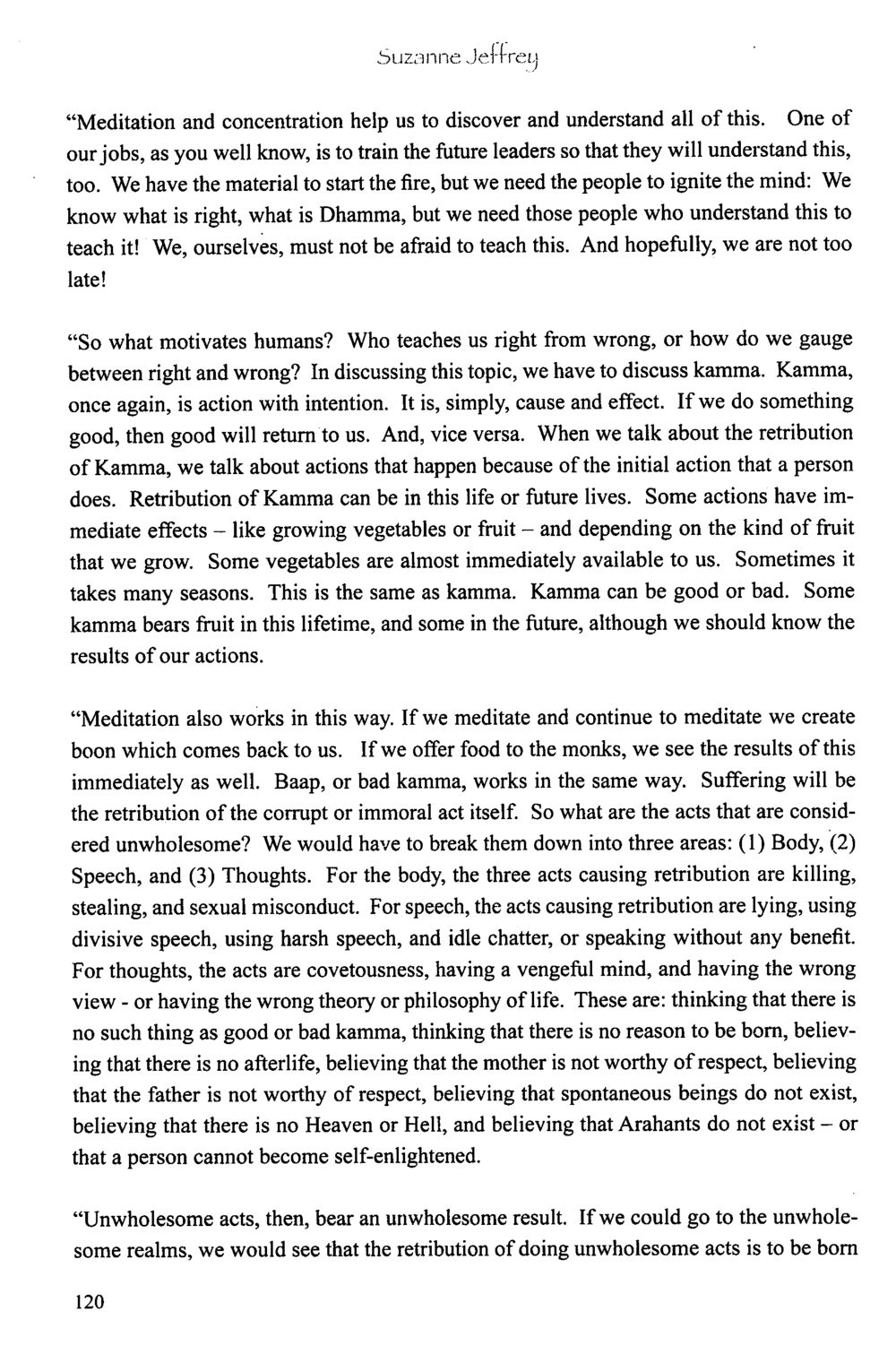Understanding Kamma and Its Effects on Life : หน้า 121/164
The Meeting with a Dhamma Master : หน้า 121/164 Explore the concept of Kamma, meditation, and the importance of teaching values to future leaders. Discover the relationship between actions and their consequences in life.
0 ครั้ง

สรุปเนื้อหา
In this discourse, Suzanne Jeffrey emphasizes the significance of meditation and concentration in understanding Kamma, which refers to the actions we take and their intentions. We are tasked with training future leaders to grasp these concepts. Kamma embodies the principle of cause and effect; our actions, whether good or bad, ultimately influence our lives. Good actions are believed to yield positive results, while bad actions result in suffering. This principle can manifest immediately or over time, akin to the growth of vegetables. Meditation nurtures good Kamma, while unwholesome acts lead to negative outcomes. Unwholesome deeds are categorized into three areas: Body (killing, stealing, sexual misconduct), Speech (lying, harsh speech), and Thoughts (covetousness, wrong views). Understanding these principles guides individuals towards ethical living and self-enlightenment. For more information, visit dmc.tv.
หัวข้อประเด็น
- Kamma and its importance
- Meditation as a tool for understanding
- Teaching future leaders
- Cause and effect in actions
- Categories of unwholesome acts
ข้อความต้นฉบับในหน้า
หน้าหนังสือทั้งหมด




































































































































































